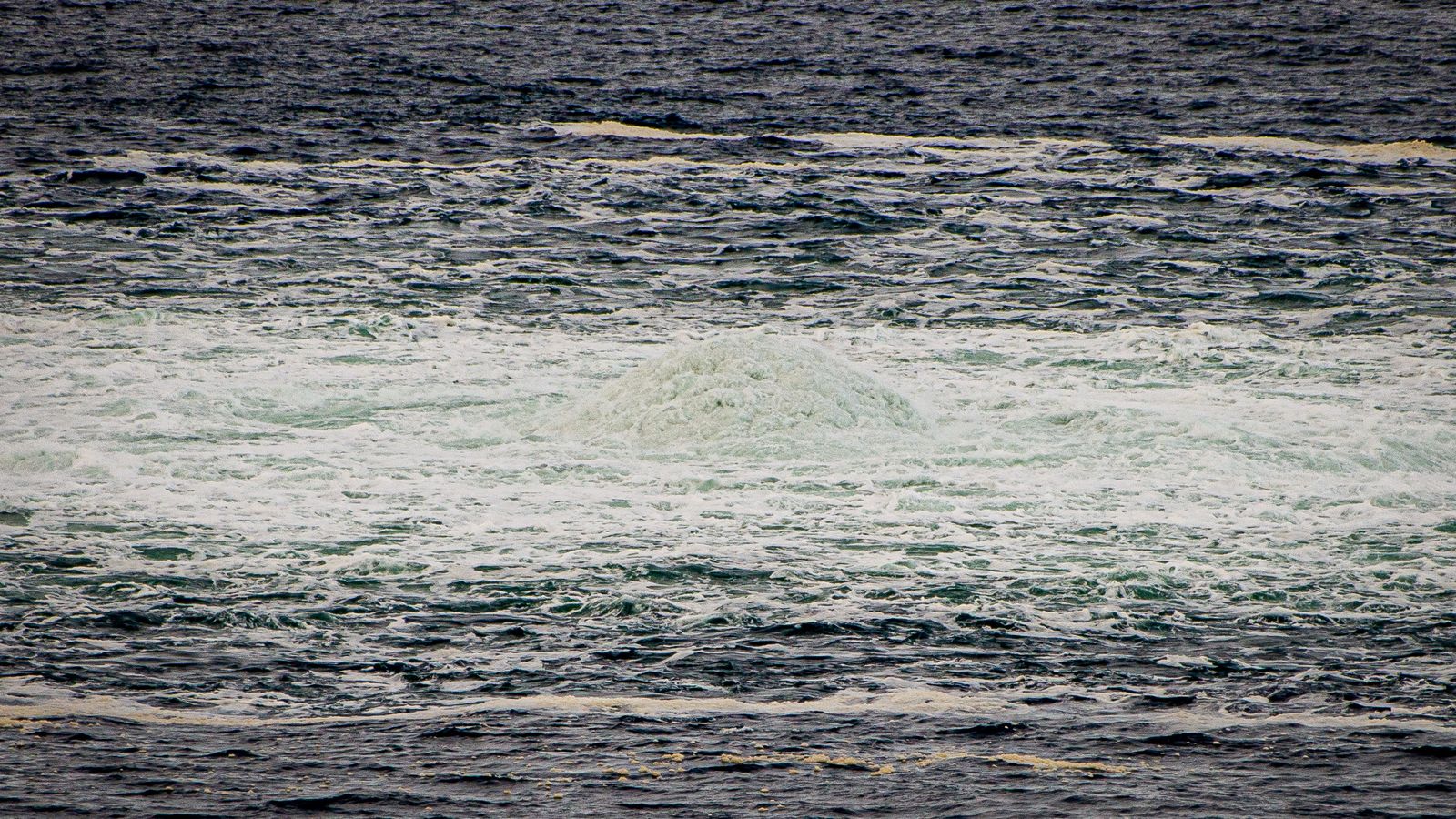Liz Truss has agreed the cause of the leaks in the Nord Stream pipelines was “sabotage”, her spokesperson has said.
The British prime minister was discussing the ruptures in the Russia-Germany gas supply lines with the Danish PM during the latter’s visit to Downing Street on Saturday.
It is believed to be the first time Ms Truss has described what happened in the Baltic Sea on Monday as a deliberate act.
While Western governments are yet to do so, many commentators have said that Russia is most likely to be responsible for damage to the pipelines. Moscow, meanwhile, has sought to blame the West.
The leaks have caused huge alarm in Europe as, if deliberate attacks are found to have caused them, it reveals how vulnerable the vast network of undersea pipelines and infrastructure is to interference, as the Ukraine war rages on the continent.
The prime ministers also said their nations looked forward to working with each other more closely through the Joint Expeditionary Force, which involves sending UK troops to the Baltic, to work alongside Danish and other forces.
A Downing Street spokesperson said after the visit of Danish Prime Minister Mette Fredriksen to Number 10: “The leaders stressed the need to stay united in the face of Russia’s despicable action in Ukraine.
Devolved nations demand urgent meeting with chancellor as Tory top team doubles down on plan to cut spending
As Tory conference looms, the PM cuts a diminished figure after squandering much of her political capital
Liz Truss admits ‘disruption’ to UK economy but stands by forecast-free mini-budget
“Prime Minister Fredriksen updated the prime minister on the damage caused to the Nord Stream pipelines last week. They agreed the incidents were clearly an act of sabotage. The prime minister offered the UK’s support for the ongoing investigation.
“The leaders agreed that the safety and security of the Baltic Sea is in everyone’s interest, and welcomed increased cooperation through the Joint Expeditionary Force.
“On energy security more widely, the prime minister and Prime Minister Fredriksen agreed on the need for like-minded democracies to work together to increase our energy independence.”
A network of pipelines runs under the North Sea from gas fields in Britain’s economic zones and there are also electricity and data cables going to and from the UK, including those involving the huge wind farms off the coast.
Read more:
Leaks to Nord Stream pipelines were ‘likely a premeditated attack using explosive devices detonated remotely’
Nord Stream leaks leave Danish residents feeling vulnerable and unsettled
What we know about the Nord Stream gas leaks and who was behind them
Overnight, Washington said the US and its allies would send divers to find out what happened before a series of leaks erupted in the Nord Stream 1 and 2 pipes on Monday night, close to the Danish island of Bornholm.
At the time, they were not carrying gas from Russia to Germany but remained pressurised.
Please use Chrome browser for a more accessible video player
Analysts have said that explosions were the most likely cause for the ruptures.
On Friday, Vladimir Putin, without providing evidence, blamed the United States and its allies for blowing up the pipelines.
At the United Nations, Russia’s ambassador told the UN Security Council that the US had much to gain in gas trade from damage to the Nord Stream pipeline system but stopped short of blaming Washington.
Russians ‘pumping out lies and disinformation’
US President Joe Biden said the leaks were a result of “a deliberate act of sabotage” and added, “now the Russians are pumping out disinformation and lies”.
Gazprom – Russia’s state-owned gas supplier which is the majority shareholder of Nord Stream’s holding company – said 800 million cubic metres of gas had escaped after the blasts.
Please use Chrome browser for a more accessible video player
The United Nations Environment Programme said the release of gas from the pipelines adds up to what is likely the biggest single release of climate-damaging methane ever recorded.
The growing insecurity comes as gas started flowing on Saturday morning to Poland through the new Baltic Pipe pipeline from Norway via Denmark and the Baltic Sea, a move that was supposed to help boost the amount of gas reaching northern Europe after Russia cut supplies in the wake of Ukraine war sanctions.









